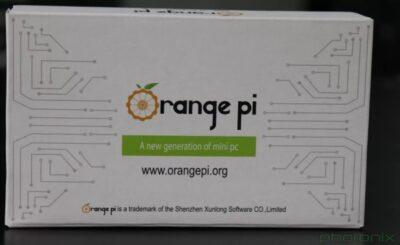One person like that
2 Comments
While I’m waiting for my first #OrangePi #SBC to arrive so I can self-host my various koehn.com services at home, I started looking at how to attach Kubernetes Pods to my SAN, which supports both iSCSI and NFS out of the box.
Turns out both are super easy: you just install the client software on the node (open-iscsi and nfs-common). NFS also requires you to install a provisioner to create new volumes on your server (I have to manually provision iSCSI volumes on the NAS). In either case, you get RWX and RWO persistent volume support quickly and easily, and k3s manages all the networking, storage, configuration, scaling, load balancing, etc.
The new nodes will be much faster (SSDNodes where I’m currently hosting overloads its servers horribly), and migrating from the pods in the cloud to the new devices looks pretty straightforward. I can join them to the same k8s cluster that I use in the cloud, and then it’s just a matter of moving the workloads and the data.

With an 8-core Rockchip RK3588S SoC, the Orange Pi 5 is leaps and bounds faster than the ageing Raspberry Pi 4. With up to 32GB of RAM, the Orange Pi 5 is also capable of serving for a more diverse user-base and even has enough potential for assembling a budget Arm Linux developer desktop. Phoronix have been testing out the Orange Pi 5 the past few weeks, and have found it’s quite fast and nice for its low price point.
The Orange Pi 5 comes in four different versions with 4GB, 8GB, 16GB, or 32GB of RAM using LPDDR4 or LPDDR4X. There is a 26-pin header on this SBC for those considering adapting this SBC for other purposes, but what is unclear is what sort of compatibility there is (if any) with any existing Raspberry Pi modules.
Well not only is the Raspberry Pi 4 ageing a bit, it has also been pretty difficult to get hold of, and not been too cheap either.
See https://www.phoronix.com/review/orange-pi-5
#Blog, #OrangePi, #raspberrypi, #technology
There's an image with lots of fixes for the #OrangePI I96:
https://github.com/TheRemote/Legendary-OrangePi-i96
Hat eigentlich schon mal jemand #Archlinux auf einem #OrangePi i96 erfolgreich nutzen können? Support für den RDA8810 ist zwar im Kernel vorhanden, aber zum einen bockt der Bootloader gewaltig und zum anderen ist die Dokumentation echt dürftig… Falls eine*r von euch mit dem Board schon mal Erfahrungen gemacht hat, ich bin für jede Hilfe dankbar ^^ Was u-boot betrifft bin ich leider ein ziemlicher n00b.
$55+ #OrangePi 4 LTS SBC features YT8531C Ethernet PHY, CDW 20U5622-00 wireless module • Tux Machines ⇨ http://www.tuxmachines.org/node/161953 #GNU #Linux #TuxMachines
#orangePi "has about 1/3rd of the compute power of your Raspberry Pi 4" http://techrights.org/irc-archives/irc-log-techrights-120222.html#tFeb%2012%2022:32:09
#OrangePi R1 Plus LTS sells with metal enclosure for $35.99 - CNX Software ⚓ https://www.cnx-software.com/2022/02/12/orange-pi-r1-plus-lts-metal-enclosure/ ䷉ #Linux #GNU #Hardware #cnxsoftware |
#OrangePi R1 Plus LTS is a cheaper dual GbE SBC with YT8531C Ethernet transceiver • Tux Machines ⇨ http://www.tuxmachines.org/node/158055 #GNU #Linux #TuxMachines